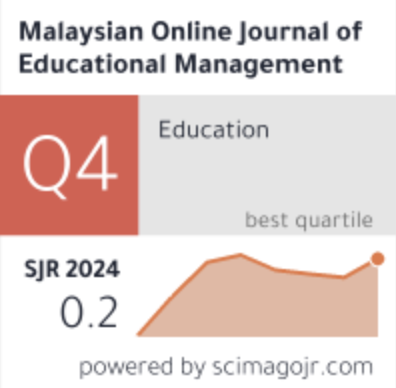THE INFLUENCE OF TEACHER’S TRANSFORMATIONAL LEADERSHIP ON STUDENT ENGAGEMENT: UNVEILING THE MEDIATING ROLE OF SELF-EFFICACY IN CHINESE HIGHER VOCATIONAL EDUCATION
DOI:
https://doi.org/10.22452/mojem.vol12no4.5Keywords:
Transformational Leadership, Teacher Leadership, Self-Efficacy, Student Engagement, Higher Vocational EducationAbstract
This study examined the connection between transformational leadership by instructors and student engagement in Chinese higher vocational education, specifically examining the mediating function of student self-efficacy. Drawing on Bandura’s social cognitive theory, a quantitative cross-sectional design was employed to collect data from 1,034 students at five different Chinese Higher Vocational Colleges. These findings indicate that transformational leadership positively affects student engagement and self-efficacy. Their sense of self-efficacy moderated the relationship between leadership and student involvement. This study adopted structural equation modeling, which confirms the proposed relationships’ robustness. However, some limitations, such as the cultural context and limited representativeness, should be considered for future studies. Policymakers and practitioners in education can use these findings to inform efforts to enhance vocational education instruction and student achievements. Implications for practice include suggestions for bettering programs that support teacher leadership and for including self-efficacy tests in educational policies to increase student involvement. These findings have implications for policymakers and educational practitioners, particularly in designing teacher leadership training programs to improve student learning performance.









